Campaign of the Week
Campaign of the Week: Domino's, If This, Then Domino's /
Pizza delivery chain syncs orders with personal events. From Contagious I/O.
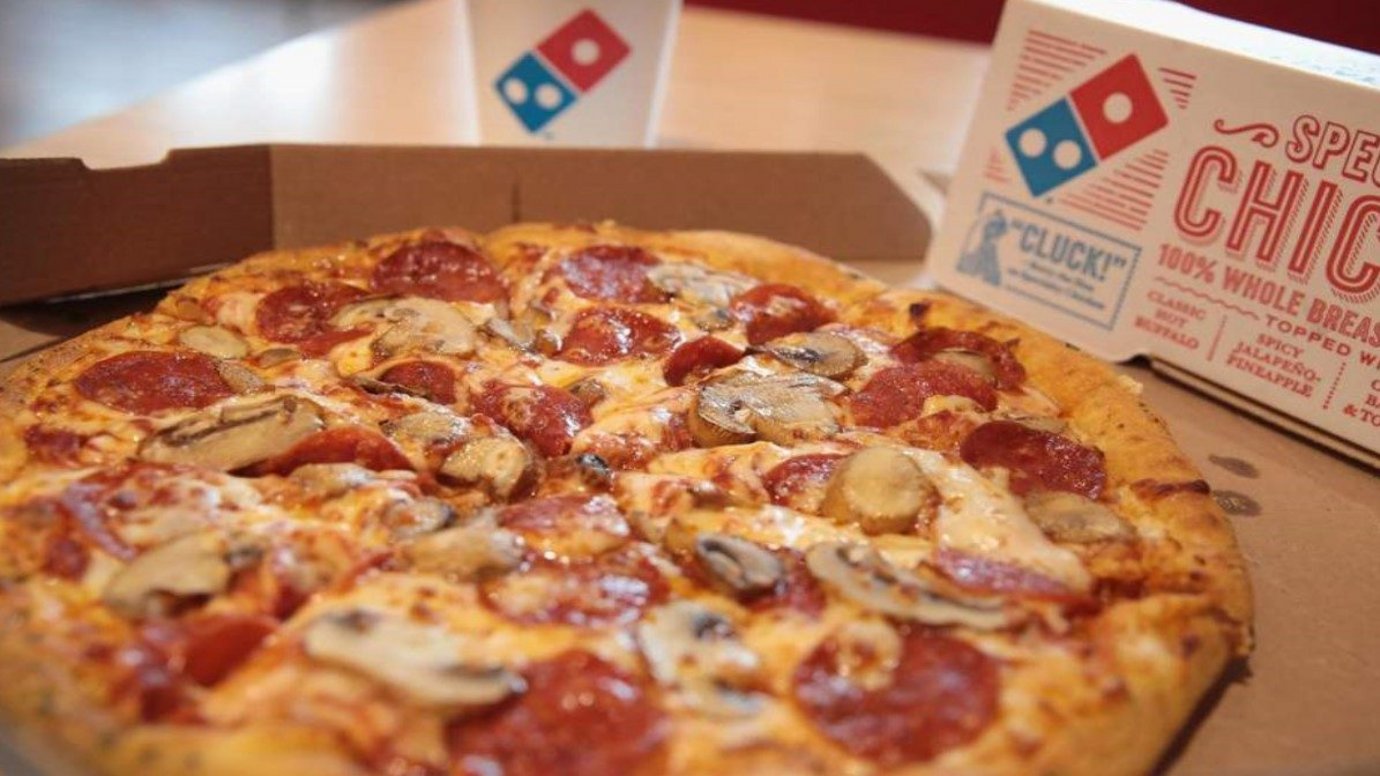
Domino’s wants customers to create alerts that prompt them to order a pizza whenever a specified trigger event occurs.
In an initiative called If This, Then Domino’s, customers can use a microsite to select personal and cultural events to trigger a pizza delivery order.

Users can choose a variety of scenarios like ‘if it’s raining, then Domino's’, or ‘if my favourite football team is playing, then Domino’s’ or ‘if I need to work past 9:00 pm, then Domino's’. If these events occur, then the user receives a text asking, ‘Do you want your Domino’s Easy Order?’, which they can confirm with a ‘yes’ or ‘no’ reply.
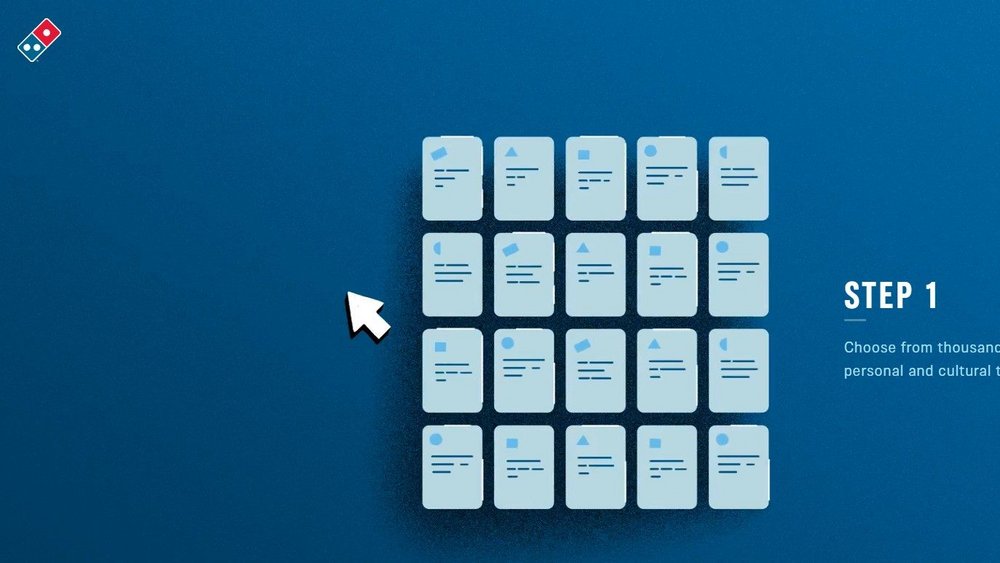
The service was created from a partnership between Domino’s Pizza and IFTTT (If This Then That), an online service that links apps and devices together to perform different actions using ‘applets’. For example, a user can trigger an automatic pizza order if their favourite sports team is about to play via an applet between ESPN Sports and Domino’s. Meanwhile, an applet between Domino’s and a connected Home device, like a washing machine, can trigger a pizza delivery order when your laundry is finished.
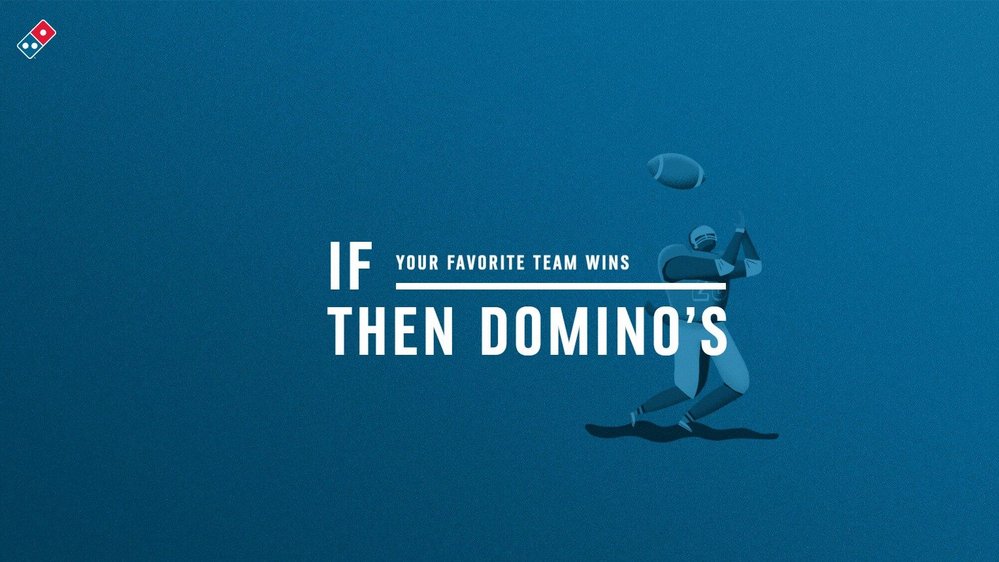
Domino’s lists many possible scenarios on its site, including random things like ‘if an astronaut goes into space, then Domino’s’, but customers are also encouraged to create their own through the IFTTT platform.
To use the service, customers need to register for an IFTTT account or log in through Google or Facebook. Users also must also register a profile with their default pizza order on the Domino’s website.
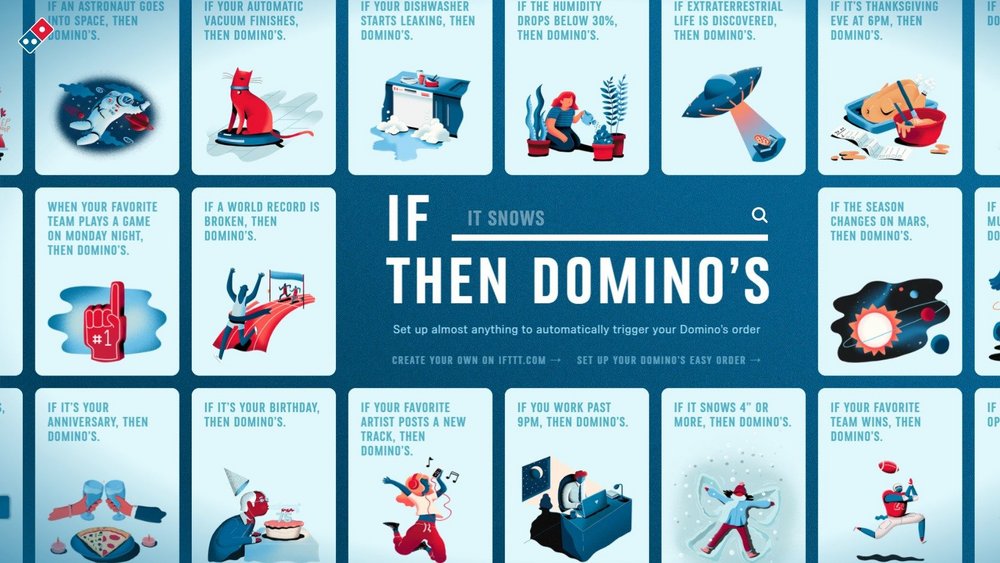
Domino’s partnered with IFTTT late last year to take orders through Apple Watch, Amazon Echo, Facebook Messenger, Google Home and Twitter. The move fits with Domino’s AnyWare strategy to get more people ordering online.
Domino’s worked with its creative agency Crispin Porter & Bogusky, Boulder, on the project with IFTTT, according to media reports.
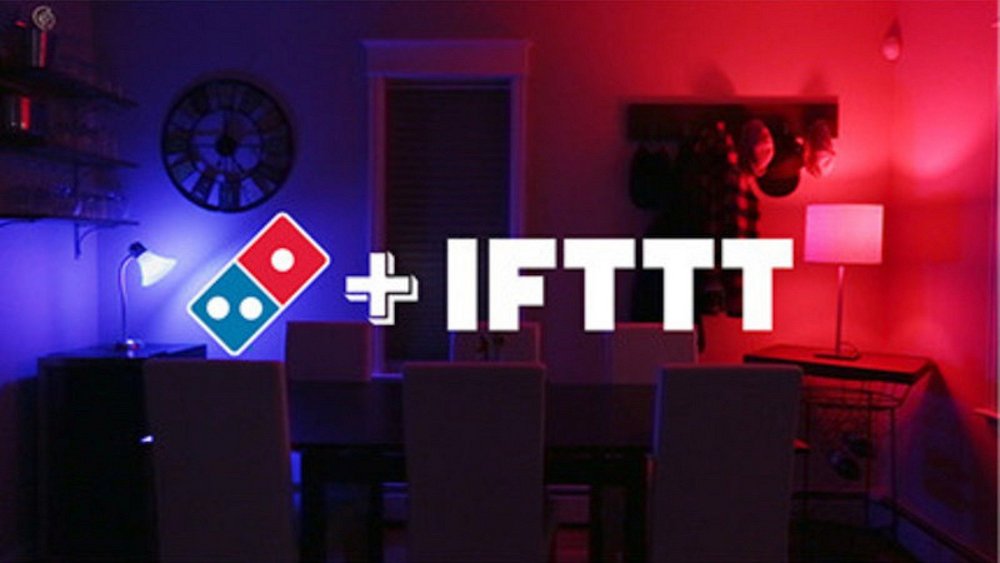
‘Now you can set up thousands of ways to automatically order Domino’s. Game day? Snow day? Laundry day? You decide,’ said a tweet from to Dominos’ official Twitter feed.
CONTAGIOUS INSIGHT /
Unlocking consumption / By linking Domino’s to specific moments, the brand is seeking to increase the key occasions when consumers order a pizza. Domino’s understands that building brand associations with pertinent moments for the customer can dramatically boost loyalty and sales, while driving incremental need.
In How Brands Grow 2, Jenni Romaniuk and Byron Sharp, professors at the Ehrenberg-Bass Institute for Marketing Science, advise brands to increase mental availability in consumers via looking into category entry points – i.e. examining the different circumstances in which customers buy from a brand and its category competitors (see framework below).
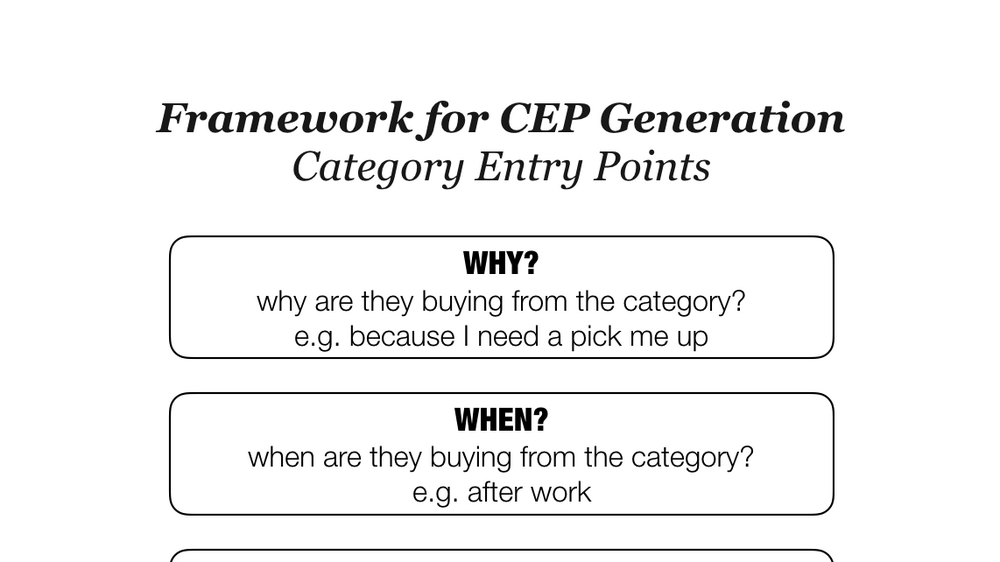
By analysing the reasons and occasions for category purchase, brands can strategise on how to boost the number of circumstances that remind people to buy their products. For this to succeed, according to Sharp and Romaniuk, a brand must expose itself to its buyers in a way that anchors it in memory so that certain situations trigger recall of it later. Domino’s has a history of doing this. On New Year’s day this year, Domino’s in the UK launched a temporary TV channel targeting people after a night of partying, building a connection between the brand and hangover recovery. Also, the brand’s decade-long sponsorship of The Simpsons on the UK’s Sky1 channel, forged a powerful link between ordering a pizza and watching the popular animated show.
Similarly, this campaign links the brand to specific occasions – like finishing domestic chores, working late, or even events in the daily news cycle – forming associations between Domino’s and the occasions, creating mental availability.
As Romaniuk and Sharp allude to in the book, whatever the product or service, most brands need to be in the memory business.
Pioneering Pizza / The initiative is also a fun and timely way to remind people they are just one click away from a pizza. A seamless purchase experience is a crucial aspect to Domino’s long-term strategy. With its release of the Zero Click app that orders a pizza when consumers open it on their phones, and the creation of a virtual assistant named Dom to help people with their order, Domino’s is constantly trying to innovate to make purchase easier for its consumers. This strategy makes sense given that most Domino’s sales now come from digital channels. According to data released by the brand, Domino’s generates more than 60% of its US sales from digital touch points, including Google Home, Facebook Messenger, Apple Watch, Amazon Echo devices, Twitter and text messages using a pizza emoji.
This latest manifestation of the partnership with IFTTT continues easing the customer path to purchase while helping position Domino’s as a digital-first pioneer.
The Contagious I/O intelligence tool is constantly updated with case studies, in-depth strategy interviews, stories about new technologies and trend reports. If you would like to find out more about how you can get access to this resource, click here.
Want more of the same? /
We don’t just write about best-in-class campaigns, interviews and trends. Our Members also receive access to briefings, online training, webinars, live events and much more.






